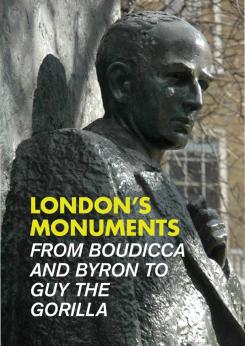Arthur Travers (Bomber) Harris (1892-1984)

On this day (13th April) 1892 the controversial head of Bomber Command was born. Here's brief account of the man, taken from London's Monuments:
Strand (west of St Clement Danes), WC2
Sculptor Faith Winter, Bronze 1992
Arthur Travers Harris joined the Royal Flying Corps in 1915 and became a pilot in the First World War at the head of 44 Squadron. In 1919 he was made a squadron leader in the newly formed Royal Air Force and saw action in India, Iraq and Iran. In Iraq Harris showed his preference for brutality when bombing villages to quell a rebellion. Air Commodore Lionel Charlton resigned in protest after witnessing the casualties. Harris had no doubts about his policy and wrote of his actions, ‘The Arab and Kurd now know what real bombing means, within 45 minutes a full-sized village can be practically wiped out’.
His advocacy of a policy of strategic bombing, developed by Hugh Trenchard, and his lack of scruples was to earn Harris the nickname ‘Bomber’ or ‘Butcher’ within the RAF and the position of Air Vice Marshal by the start of World War Two. Harris served under Charles Portal as head of Bomber Command and worked hard to cripple Germany’s morale through strategic bombing of its major cities. As Allied victory became more certain, it was Harris who successfully appealed to Churchill for the policy of strategic bombing to continue, culminating in the bombing of Dresden and other cities in February 1945. After the war Harris continued to defend his actions, but spent most of the post-war years living in South Africa. This monument was unveiled by the Queen Mother in 1992 amid controversy, with a crowd booing and throwing eggs in protest at the celebration of someone they considered a war criminal.
This monument is one of over 200 featured in the latest edition of London's Monuments.





